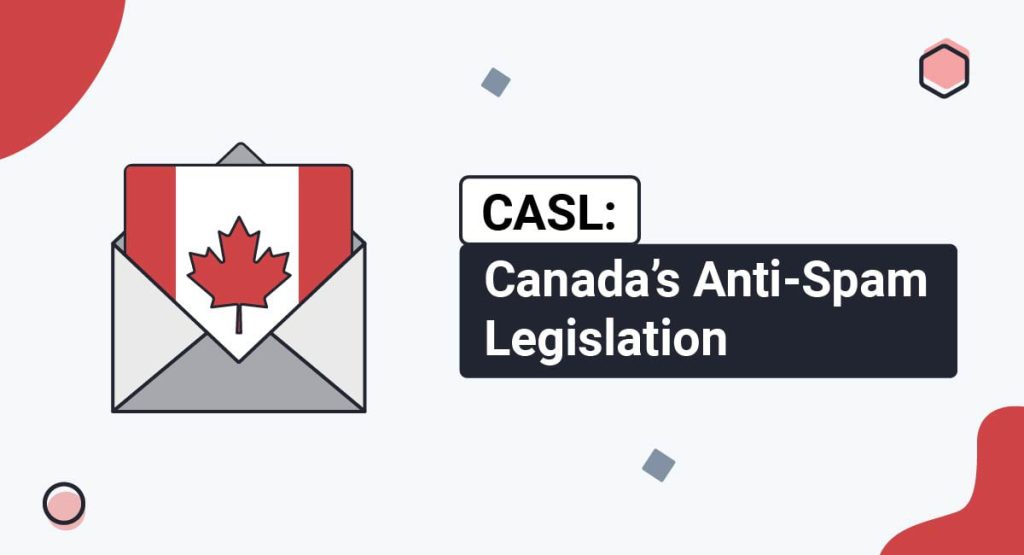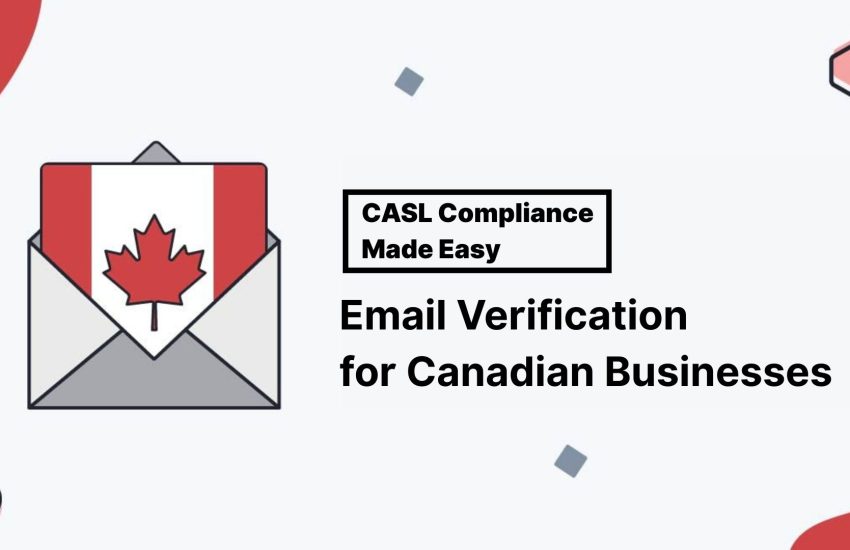The Canadian Anti-Spam Legislation (CASL) was implemented in 2014 to curb spam and protect consumers from cyber threats like phishing, malware, and unsolicited messages. Since its inception, CASL has become one of the strictest anti-spam laws in the world, with severe penalties for non-compliance. In fact, the Canadian Radio-television and Telecommunications Commission (CRTC) reported that over $200 million in fines had been imposed for violations up to 2020.
For businesses operating in Canada or targeting Canadian consumers, adhering to CASL is not just a regulatory requirement; it’s crucial to maintain trust and ensure the effectiveness of email marketing campaigns. In this guide, we will explore everything you need to know about CASL, including its key provisions, how it impacts your business, and best practices to ensure compliance.
Key Takeaways
- CASL aims to reduce spam and protect consumers from cyber threats like phishing and malware.
- Businesses must obtain explicit consent from recipients before sending any Commercial Electronic Messages (CEMs).
- CASL penalties can reach up to $10 million for businesses, making compliance essential.
- Email verification is crucial for ensuring valid consent and maintaining a clean email list.
- Following CASL can improve customer trust and enhance email deliverability rates.
What is CASL?

The Canadian Anti-Spam Legislation (CASL) is a law designed to regulate commercial electronic communications in Canada. Enacted in 2014, it sets guidelines for how businesses should collect and use email addresses, ensuring that all email communications are consented to by recipients.
CASL specifically governs Commercial Electronic Messages (CEMs), which include emails, texts, and any other digital communication that promotes, advertises, or offers goods, services, or content. The legislation applies to all businesses, whether based in Canada or abroad, if they are sending messages to Canadian recipients.
Why is CASL Important for Businesses?
CASL is more than just a regulatory requirement; it’s essential for protecting your brand’s reputation and ensuring ethical communication with consumers. Here’s why CASL is necessary:
- Protects Consumers from Unwanted Spam: By enforcing stricter rules on unsolicited communication, CASL reduces the amount of spam and other unwanted messages that consumers receive, fostering a better consumer experience.
- Avoid Legal Penalties: Non-compliance can result in steep fines. Businesses can be fined up to $10 million per violation, which could significantly impact a company’s financial standing.
- Builds Customer Trust: Adhering to CASL regulations helps businesses gain trust and credibility. Consumers are more likely to engage with companies that follow privacy laws and respect their preferences.
- Increases Email Marketing Effectiveness: By ensuring that only valid and engaged recipients are on your mailing list, CASL compliance can improve email deliverability and open rates, leading to more successful marketing campaigns.
Key Provisions of CASL
CASL outlines three key components that businesses must adhere to when sending CEMs:
1. Consent
Businesses must obtain explicit consent before sending CEMs. There are two types of consent:
- Express Consent: Direct, explicit permission granted by the recipient. This can be through a sign-up form, a checkbox, or other clear methods where the consumer opts in to receive communications.
- Implied Consent: This applies when there is an existing business relationship. For example, if a customer has made a recent purchase or inquiry, implied consent may allow businesses to send them promotional messages. However, implied consent expires after two years.
2. Identification
Every CEM must include specific information about the sender:
- Business Name: The legal name of the business or individual sending the message.
- Physical Address: The business’s physical address, including street name, city, and postal code.
- Contact Information: A phone number or email address that allows recipients to contact the sender.
3. Unsubscribe Mechanism
CASL requires that all CEMs must have an easy-to-use unsubscribe option. The unsubscribe mechanism must:
- Be functional for at least 60 days.
- Allow recipients to easily opt out of receiving further messages.
- Be honored within 10 business days of the request.
How CASL Affects Different Businesses
CASL affects businesses across different industries and sizes, but the way it applies depends on the nature of the company.
1. B2C (Business to Consumer)
For businesses that communicate directly with consumers, such as online stores or service providers, obtaining express consent is essential. CEMs like promotional emails, newsletters, and special offers can only be sent to individuals who have explicitly opted in.
2. B2B (Business to Business)
B2B businesses can rely on implied consent for a limited time after an initial business relationship is established (e.g., after a purchase or inquiry). However, companies must be careful to maintain records and ensure that implied consent is documented and relevant.
3. Non-Profits and Charities
Non-profit organizations and charities that send fundraising messages or marketing communications must also comply with CASL. If a recipient has donated or interacted with the organization in the past, implied consent may be used, but it’s subject to expiration after two years.
4. International Businesses
International businesses that send CEMs to Canadian recipients must comply with CASL. This includes companies from outside Canada that target Canadian markets. Global businesses must follow CASL’s rules on consent, identification, and unsubscribe mechanisms.
Failure to comply with CASL can result in significant penalties. Enforcement is carried out by the CRTC, OPC, and the Competition Bureau, which monitor and investigate potential violations.
- Penalties for Individuals: Up to $1 million per violation.
- Penalties for Businesses: Up to $10 million per violation.
In addition to financial penalties, businesses may face legal action or reputational damage from consumers or other stakeholders. Companies must stay compliant to avoid legal trouble and maintain customer trust.
How Email Verification Can Help with CASL Compliance
One of the best ways to ensure CASL compliance is by implementing email verification. Here’s how it helps:
1. Ensures Valid Consent
Email verification confirms that a recipient’s email address is valid and that they are genuinely interested in receiving communications. This ensures that businesses are sending CEMs to legitimate recipients, which helps maintain compliance with CASL.
2. Reduces Spam Risks
CASL aims to prevent spam, and email verification plays a key role in this by ensuring that emails are only sent to engaged and consented recipients. This reduces the chances of messages being flagged as spam and helps improve deliverability rates.
3. Prevents High Bounce Rates
By verifying emails before sending CEMs, businesses can avoid high bounce rates due to invalid addresses. High bounce rates can affect email deliverability and negatively impact the company’s reputation.
4. Proof of Consent
Email verification tools keep records of how and when consent was obtained, which can serve as proof in the event of an audit or investigation. This is a critical part of CASL compliance, especially when dealing with implied consent.

Best Practices for CASL Compliance
To stay CASL-compliant, businesses should adopt the following best practices:
- Obtain Clear and Explicit Consent: Ensure that consent is obtained transparently and that recipients know exactly what they are consenting to.
- Maintain a Clean Email List: Regularly update your email list by removing invalid or inactive email addresses. This will improve deliverability rates and ensure compliance.
- Provide an Easy Unsubscribe Option: Every CEM must have a visible and functional unsubscribe link that works for at least 60 days.
- Document Consent: Keep detailed records of how consent was obtained, especially for implied consent, which may expire over time.
- Honor Unsubscribe Requests Promptly: Make sure you respond to unsubscribe requests within 10 business days as required by CASL.
FAQs About CASL Compliance
What is CASL?
CASL stands for Canadian Anti-Spam Legislation, which is designed to prevent spam and ensure that commercial electronic communications are only sent to recipients who have consented.
What is the penalty for CASL violations?
Penalties can range from $1 million for individuals to $10 million for businesses per violation.
What is the difference between express and implied consent?
- Express Consent: Explicit permission given by the recipient (e.g., through a checkbox or opt-in form).
- Implied Consent: Implied permission based on a prior business relationship (e.g., after a purchase), but it expires after two years.
Do I need consent from recipients in other countries?
If you are sending CEMs to recipients in Canada, you must comply with CASL, even if your business is based outside of Canada.
Can email verification help with CASL compliance?
Yes, email verification ensures that emails are sent to legitimate and consented recipients, reducing the risk of violating CASL regulations.
Conclusion
CASL compliance is essential for any business operating in Canada or sending electronic communications to Canadian recipients. Adhering to CASL’s regulations not only helps companies to avoid hefty fines but also builds trust and enhances the effectiveness of digital marketing campaigns.
By obtaining valid consent, maintaining a clean email list, and using email verification tools, businesses can ensure CASL compliance and improve email deliverability. Following best practices will help companies to avoid legal trouble, maintain customer trust, and enhance their reputation in the digital world.
James P. is Digital Marketing Executive at MyEmailVerifier. He is an expert in Content Writing, Inbound marketing, and lead generation. James’s passion for learning about people led her to a career in marketing and social media, with an emphasis on his content creation.

